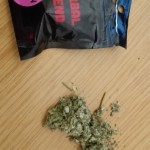 Do you know what your children are experimenting with? asks Wedge Gardens Treatment Centre social worker Karen Griessel.
Do you know what your children are experimenting with? asks Wedge Gardens Treatment Centre social worker Karen Griessel.
Packaged in colourful foil under names such as K2, Spice, Joker, Chill X, Black Mamba, Kush and Kronic, the ‘tobacco’ used to roll herbal smokes is being sold at your local café, petrol stations and via the internet.
According to America’s National Institute of Drug Abuse, the effects of these herbal smokes can be unpredictable and even life threatening in some cases.
“A package typically contains three grams of dried vegetable matter to which one or more cannabinoids have been added. Some of these blends are sprayed with flavouring agents and it is widely reported around the world that these herbal smokes pose a great threat to society and individual health,” says Karen.
Wedge Gardens, the Rand Aid-run substance abuse treatment centre at which Karen works, first noticed the increased popularity of these herbal smokes in the last two months.
“The instructions on the back of the package suggest that the contents can be smoked in a rolled joint or made as an infused tea,” adds Karen.
The local price for a three-gram packet that is approximately 5cm by 3cm in size is R60. Wedge Gardens sent an anonymous source to a corner café in Lyndhurst and managed to buy a package without raising questions.
“The problem with chemicals such as those used in this product is that if one is banned, only a little tweaking is needed to create a chemically different but effectively similar compound.”
This dangerous drug was created in the 1970s but has now become popular.
“It is called herbs or incense so that it can bypass laws because it has not yet been approved by the relevant authorities. However, it is reported by users as having psychotropic effects; which means it affects mental activity, behaviour or perception. It is thus a mood-altering substance. These are classified as new psychoactive substances and are unregulated. They act on the same brain cell receptors as other drugs such as natural cannabis,” says Karen.
She adds that it is not the herbs themselves that are dangerous but the chemicals called cannabinoids that are added to create the high. “These chemicals are made in laboratories and the danger lies in the fact that none of these chemicals have had safety testing. They often have negative symptoms such as heart palpitations, vomiting, dizziness, seizures, kidney failure, fainting, intense fear, irrational behaviour, panic attacks and psychosis.
“Another worry is that each batch gets made with different chemicals. This makes pinpointing data challenging. Little is known about the pharmacology or toxicology and few formal human studies have been published. These chemicals are both physically and psychologically addictive which, ultimately, will lead to withdrawals which will require detox.
“One user who sought assistance at Wedge Gardens said that it was not like a marijuana high but more like a mini acid trip that made him vomit, violent and have suicidal thoughts,” says Karen.
Apart from looking out for physical signs such as shaking, being pale, not recognising you and not making sense, Karen urges parents to be proactive by talking to their children about this drug so that they know the risks and are empowered with knowledge.
“It is not just teenagers who experiment with drugs. As teachers, social workers, psychologists and generally society at large we need to be vigilant and aware in the war against drugs.”
* Wedge Gardens can be reached at 011 430 0320. You can also ‘like’ Wedge Gardens on Facebook (www.facebook.com/WedgeGardensTreatmentCentre) or follow them on Twitter (@WedgeGardens)